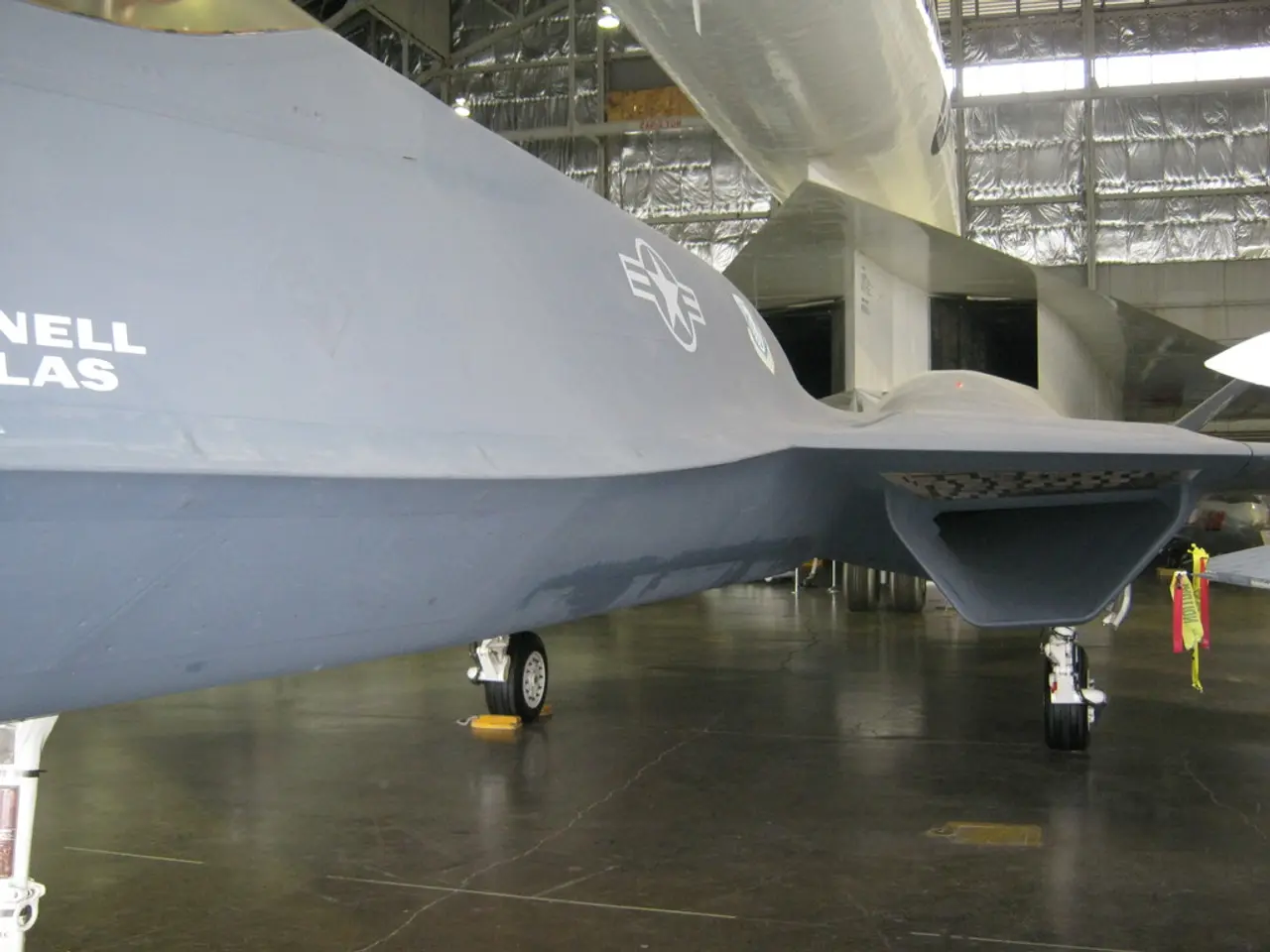Boeing faces ongoing challenges, yet shows signs of recovery – shares tumble in Q4 report
In the world of aviation, Boeing, one of the leading aircraft manufacturers, continues to make strides in its development and certification processes for its latest models. As of late July 2025, the company's 777-9, part of the 777X family, is actively progressing through certification after a decade of delays and structural issues.
The Federal Aviation Administration (FAA) has approved Boeing to begin the next phase of certification, the Type Inspection Authorization (TIA) 2C phase. This phase focuses on system demonstrations and safety validation. Boeing's test fleet has completed over 1,400 flights and nearly 4,000 flight hours, indicating significant progress toward final approval.
Regarding the Boeing 737 MAX variants (MAX 7 and MAX 10), recent information on their certification or structural issues is not readily available. However, these variants have been previously certified and are in service, with the MAX 10 initially having faced design and certification delays earlier in the decade. No major new structural issues or timeline updates for their certification emerge in the latest 2025 information.
The 777-9, despite past challenges, remains a key future product for Boeing. Once certified, it will enter long-haul service, marking a significant step for the company.
Meanwhile, Boeing's financial performance in Q2 shows a mixed picture. The company reported a loss of $612 million, a significant improvement from last year's $1.4 billion. However, the free cash flow for Q2 was around $200 million, less than the $900 million expected. The company made more aircraft deliveries than expected in Q2, but the future increase of the 737 Max production rate to 42 units remains uncertain.
The Boeing stock, which has recovered significantly in recent months, reaching a new yearly high of around $245, is reflecting volatility due to the company's ongoing issues. The area around $245 now serves as a short-term resistance for the Boeing stock. Supports for the stock are at $230 and $220. Only a stable break above the high would generate new momentum.
In the broader aviation industry, the A320neo family from Airbus is fully booked well into the next decade, indicating strong demand for Airbus' products.
In conclusion, Boeing's focus is primarily on the 777-9, with FAA engagement moving toward final certification despite past structural challenges. The modernized 777X program remains a key future product for Boeing. The status of the 737 MAX variants, while not as prominent in recent news, continues to be a part of Boeing's product lineup. The company's financial performance does not indicate a genuine turnaround yet, but the stock's recovery suggests investor confidence in the company's long-term prospects.
The focus of Boeing's current endeavors is primarily on the certification of its 777-9, a key future product, which is progressing through the Type Inspection Authorization (TIA) 2C phase overseen by the Federal Aviation Administration (FAA). Despite facing structural challenges in the past, Boeing's financial performance, though not indicating a genuine turnaround yet, suggests that investors remain confident in the company's long-term prospects.




